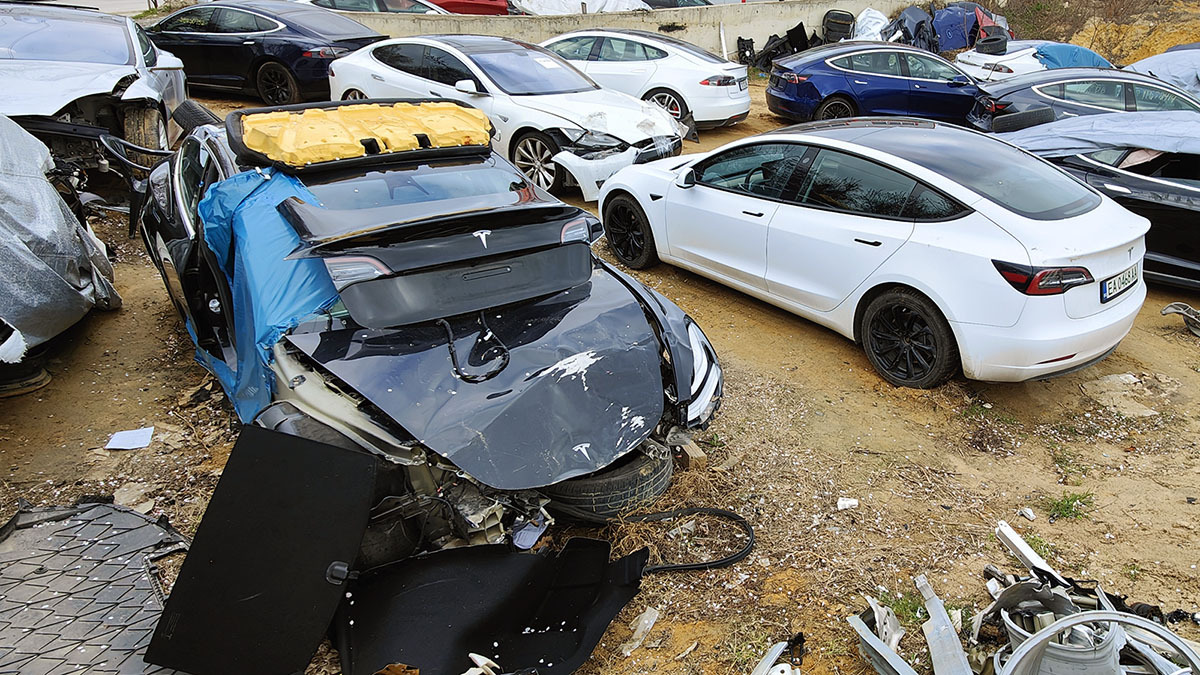They should be cheaper to repair since there are less parts. The added costs are related to design decisions.
When things are welded together instead of paneled, it’s more expensive. When battery packs have to be replaced in their entirety instead of individual packs or cells, it’s more expensive. Etc. Etc.
The title is misleading, because nothing stops ICE car manufacturers from adopting the same unicast build bodies of those cars, and then EV will still be more expensive to make but with similar repair and lower maintenance cost.
But I really hope that common sense will prevail, even though I am doubtful.
Time to standardize connectors, control panels, battery sizes, motors etc.
I wonder if this kind of thing might make conversions into older cars more viable. If the body and the million computers etc will cost heaps to fix in a newish EV, that might mean an increased supply of electric drivetrains at the wreckers. They’re not exactly a drop-in proposition but having the parts available has to be a good start.
They will never be cheaper. Just the costs of the battery, or they do shady bussiness tricks, like hooking you in cheap initial costs but horeandus repair/replacement bills.
An electric motor is SIGNIFICANTLY more simple to produce than an entire internal combustion engine. There are far fewer moving parts on an electric car than a gasoline one.
The battery is a significant cost, but not all cars need to have 300 miles of range. It is also possible that once the market is saturated (i.e. - several decades), that recycled battery packs will be cheaper to produce than batteries built from raw materials.
The major reason why electric cars are so expensive right now is because there are far fewer of them, and the ones that are being made have a target market of an upper-middle class household. They’re luxury/status symbols as much as anything else. Secondarily, there isn’t a large used electric car market yet.
There is a large potential for cost reductions. Assuming technology continues to improve, electric cars will drop below the price of gas and diesel for everyday driving. Internal combustion engines will most likely be reduced to specialty vehicles.
Also, as we realize that we don’t need 400+ miles of range in a commuter car, cheaper battery chemistries make a lot of sense, despite their shorter range per kg or lb
Most people want a car that can do everything they need a car to do. As otherwise they have to buy a SECOND car that can perform the jobs the first car can’t. At that point people look at their finances and wonder why they have the first car at all, that first car has a monthly payment, insurance, and repairs. It would be so much cheaper to ditch it and just have the car that performs all the functions.
But the battery pack is far and away more expensive than the engine. Shit far and away more expensive than the engine AND transmission. Shit like half an EVs price is the battery.
Yeah, it’s about the price of a full engine and transmission replacement for an internal combustion car.
Yeah, I’m not really sure what the path to the EV being cheaper to produce is. Every EV we have seen is more expensive than its ICE counterpart. And it isn’t like batteries are some new tech that manufacturers don’t know how to make well. No, these are being mass produced.
The higher repair costs come from the fact that while an EV pack is the single most expensive part of the car, and if it is damaged, you now have to replace the single most expensive part of the car.
Higher insurance costs flow from the higher purchase cost and the higher repair costs. So, those won’t come down either.
Edit: One thing that could bring down repair costs would be if the EV manufacturers would stop making it so damn hard to swap in your own replacement parts. A battery and electric motor isn’t complicated. But repairing either of these parts on an EV is complicated due to DRM and other anti-consumer design choices.
Every new technology is initially more expensive, then as it moves into mass production the cost goes down because of economies of scale - more suppliers, innovations in technique.
Battery costs have gone down an insane amount already, and it doesn’t look like they’re done.
Going further, what percentage of accidents affect the battery pack? The article seems to conflate Tesla manufacturing techniques that make cosmetic repairs difficult with all electric vehicles - just because Tesla has long repairs doesn’t mean all manufacturers do.
It also talks about electric manufacturers going out of business, but is it 15% by number of businesses or by manufacturing volume? Lucid and Rivian aren’t making that many cars in terms of absolute volume, but could go under. Hyundai, Kia, Chevy et al. make a lot more cars and seem unlikely to collapse.





